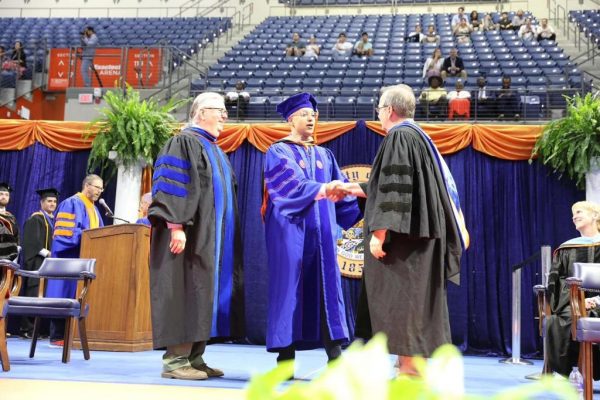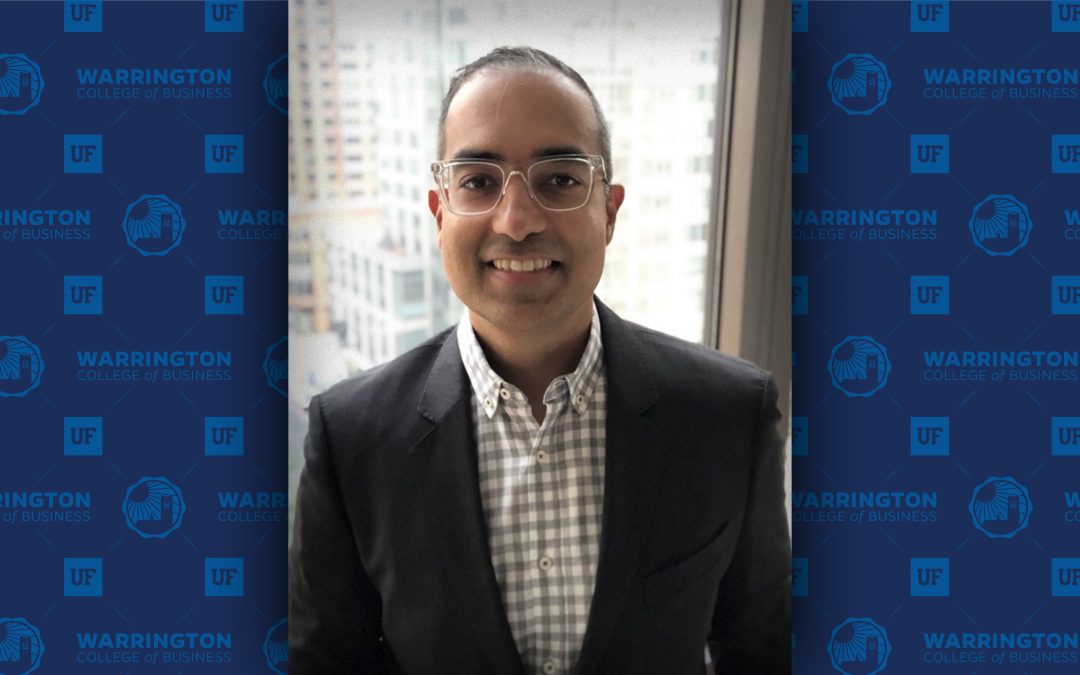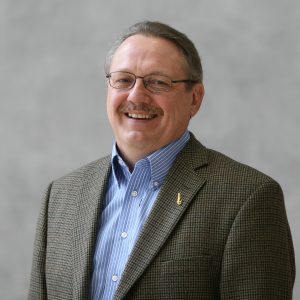Why nations are adopting Bitcoin as part of their treasury strategy
University of Florida Doctor of Business Administration graduate Sachin Jaitly shares his research insights, which were recently highlighted in Forbes.
Dr. Sachin Jaitly is a Co-Founder and General Partner of Morgan Creek Digital and a 2023 graduate of the University of Florida Doctor of Business Administration (DBA) in the Warrington College of Business.
In his role at Morgan Creek Digital, Jaitly is a venture capital investor in the blockchain, cryptocurrency, artificial intelligence and big data sectors. Five years ago, Jaitly began to publish unique research on blockchain and cryptocurrency, sparking his interest in earning a doctoral degree as a way to become a stronger and more credible voice in the venture capital and technology industry.
As he began looking into programs, he found that the University of Florida DBA program satisfied his three conditions.
“It was the best DBA program in the country, had the appropriate flexibility for work/life/school balance and was located in Florida, which is where I grew up and have many personal ties,” he said.
Since completing the program, Jaitly continues his role as a venture capitalist, investing and helping grow the next generation of entrepreneurs and technologies, and recently accepted a position as an adjunct lecturer at Rollins College where he will teach “Foundations of Blockchain and Applications in Finance.”
His dissertation, “Nations of Wealth: The Adoption of Cryptocurrency by Sovereign Nations,” was recently highlighted by Forbes for its analysis of why nations are adopting Bitcoin as part of their national treasury strategy.
We spoke with Jaitly about the research, how it came to be, and what he hopes you’ll take away from the insights.
Q: Share a brief overview of your dissertation with us. What sparked the idea?
Jaitly: The central question for my dissertation research is “Why are sovereign nations adopting cryptocurrency?” I noticed a growing field of research on things like bitcoin and the benefits of investing in it. However, there was a clear void in the conversation on why nations were adopting this new asset class of cryptocurrency. I hoped to fill that void with my research.
Q: So, what did you find? What do you think is the most striking result in your dissertation?
Jaitly: The most striking aspect of my research is how many nations today own cryptocurrency (i.e. Bitcoin) and how the trend of the number of countries is only accelerating. I identified 11 nations that either hold or have held Bitcoin in their treasury and this was the biggest takeaway for me. I was surprised to see how many sovereign treasuries were so active in this regard. In addition, I was able to prove that money supply and inflation were driving factors in the decision for why nations were adopting Bitcoin.
Q: Are there any practical implications for your work?
Jaitly: I believe studying how and why sovereign nations are adopting cryptocurrency will be a new field of research. The intent for my research was to start the conversation and I expect many academics and regulators to join in. As more findings and research surface, more government officials are expected to take notice and form policies on how cryptocurrency will impact their monetary and treasury policies. With this in mind, I expect many treasury departments around the world to reference my research, when they form their opinions on how cryptocurrency will impact their policy decisions.
Q: What was the dissertation creation process like? How did you gather and work with the data?
Jaitly: Although the dissertation was far more grueling and rigorous than I ever expected, it was somewhat manageable for me because I had a clear vision of what I wanted my completed dissertation to feel like. This focus of a clear vision surrounding my dissertation enabled me to graduate a semester early. Since I applied to the program, almost four years ago, my north star for my research was always there and it allowed me to prioritize where to spend my time and be efficient.
Q: How did the faculty in the DBA program help you during your dissertation process?
Jaitly: Andy Naranjo, who was the Chair of my dissertation committee, was exceptionally helpful. He understood my vision, believed in my research, and was very timely and clear on his feedback as I iterated on my analysis. We had to operate on a fast pace to hit our internal deadlines and milestones and Andy was very supportive in that regard.
Q: Did you experience any challenges while working on your dissertation? If so, how did you work to overcome them?
Jaitly: One of the biggest hurdles for my dissertation was collecting all of the publicly available data for the most recent months and quarters. I was pulling data from governmental organizations, like the Federal Reserve, and didn’t appreciate how much lag time they had in publishing their data. I wanted to study data from 2013 through the end of 2022, but some aspects of 2022 data wasn’t available until mid-2023, which would have delayed my dissertation and graduation. In concert with my Chair, I decided to remove the 2022 data because of availability issues and compress my data from 2013 to 2021.

Jaitly with Gary McGill and Michael Ryngaert at his commencement ceremony.




